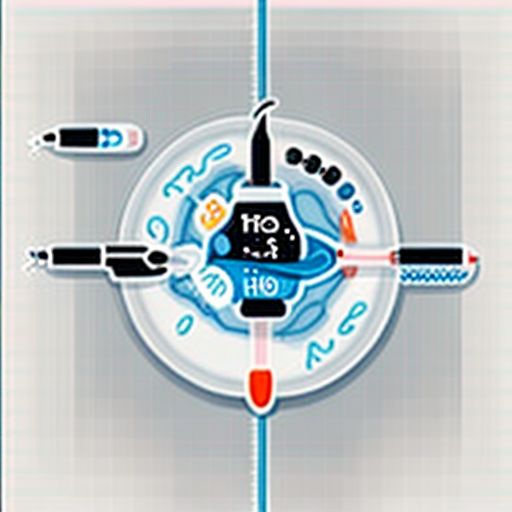Living with type 1 diabetes can be challenging, but with the right treatment plan, individuals can live healthy and fulfilling lives. This comprehensive guide delves into the intricacies of type 1 diabetes treatments, empowering you with the knowledge to manage the condition effectively.
What is Type 1 Diabetes?
Type 1 diabetes, formerly known as juvenile diabetes or insulin-dependent diabetes, is an autoimmune disease. In this condition, the body’s immune system mistakenly attacks and destroys the insulin-producing beta cells in the pancreas. Insulin is a hormone that regulates blood glucose levels by allowing sugar to enter cells for energy. Without insulin, glucose builds up in the bloodstream, leading to hyperglycemia.
The Importance of Type 1 Diabetes Treatment
Effective management of type 1 diabetes is crucial to prevent short-term and long-term complications.
Short-Term Complications:
- Diabetic Ketoacidosis (DKA): A life-threatening condition that occurs when the body starts breaking down fat for energy due to a lack of insulin.
- Hypoglycemia: Low blood sugar levels, often caused by an imbalance between insulin intake, food, and physical activity.
Long-Term Complications:
- Cardiovascular Disease: Increased risk of heart attack, stroke, and other cardiovascular problems.
- Nerve Damage (Neuropathy): High blood sugar can damage nerves throughout the body.
- Kidney Damage (Nephropathy): High blood sugar can harm the kidneys’ filtering units.
- Eye Damage (Retinopathy): Damage to blood vessels in the retina, potentially leading to vision loss.
Exploring Type 1 Diabetes Treatment Options
Managing type 1 diabetes involves a multifaceted approach, with treatment plans tailored to individual needs.
Insulin Therapy: The Cornerstone of Treatment
Since the body doesn’t produce insulin in type 1 diabetes, insulin therapy becomes essential for survival. Different types of insulin are available, each with varying onset and duration of action:
- Rapid-acting insulin: Taken before meals to cover the immediate rise in blood sugar.
- Short-acting insulin: Injected around mealtimes to control blood sugar levels.
- Intermediate-acting insulin: Provides longer-lasting coverage.
- Long-acting insulin: Taken once or twice daily to provide basal insulin levels.
Insulin can be administered using various methods:
- Injections: Traditional method using syringes or insulin pens.
- Insulin pumps: Small, wearable devices that deliver continuous insulin infusion.
Blood Glucose Monitoring: Keeping Track
Regular blood glucose monitoring is vital for managing type 1 diabetes effectively. This involves checking blood sugar levels multiple times a day using a glucometer. Continuous glucose monitors (CGMs) offer real-time glucose readings, providing valuable insights into blood sugar fluctuations.
Healthy Diet and Regular Exercise: Lifestyle Modifications
Adopting a healthy lifestyle plays a significant role in managing type 1 diabetes:
- Healthy Eating: Focus on a balanced diet rich in fruits, vegetables, whole grains, and lean protein while limiting processed foods, sugary drinks, and saturated fats.
- Regular Exercise: Engage in physical activity most days of the week. Consult with a healthcare professional to determine suitable exercises and intensity levels.
Other Treatment Considerations
- Pancreas Transplant: While not a common treatment, pancreas transplants can potentially cure type 1 diabetes. However, this complex procedure involves lifelong immunosuppressant medications.
- Islet Cell Transplantation: An experimental treatment involving transplanting insulin-producing islet cells from a donor pancreas.
- Artificial Pancreas Systems: Emerging technologies that aim to mimic the function of a healthy pancreas by automatically adjusting insulin delivery based on real-time glucose monitoring.
treatment.phatgiao60s.com/wp-content/uploads/2024/07/type 1 diabetes treatment-6694fa.jpg" alt="type 1 diabetes treatment illustration" width="512" height="512">type 1 diabetes treatment illustration
FAQs about Type 1 Diabetes Treatment
What is the life expectancy of someone with type 1 diabetes?
With proper management and advancements in treatment, individuals with type 1 diabetes can live long and healthy lives. Studies have shown that life expectancy for people with type 1 diabetes has significantly improved over the years.
Can type 1 diabetes be prevented?
Currently, there’s no known way to prevent type 1 diabetes as it’s an autoimmune disease. Research is ongoing to explore potential preventive measures.
What is the difference between type 1 and type 2 diabetes?
While both types involve problems with insulin, they have distinct causes:
- Type 1 Diabetes: An autoimmune condition where the body’s immune system attacks insulin-producing cells.
- Type 2 Diabetes: Develops when the body becomes resistant to insulin or doesn’t produce enough insulin.
What are the latest advancements in type 1 diabetes treatment?
Research in type 1 diabetes treatment is constantly evolving, with promising advancements in areas like:
- Smart Insulin Pumps: These pumps use algorithms to automate insulin delivery based on CGM data.
- Immunotherapy: Studies are exploring ways to modulate the immune system to prevent or halt the destruction of beta cells.
- Stem Cell Therapy: Researchers are investigating the potential of stem cells to generate new insulin-producing cells.
Conclusion
Living with type 1 diabetes requires ongoing management and commitment to treatment. However, with the right knowledge, resources, and support, individuals with type 1 diabetes can lead full and active lives. This comprehensive guide has provided valuable insights into type 1 diabetes treatments. For further information and personalized guidance, consult with a healthcare professional specializing in diabetes care.
